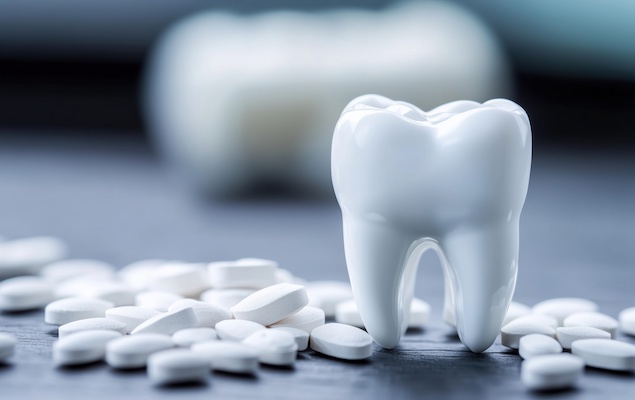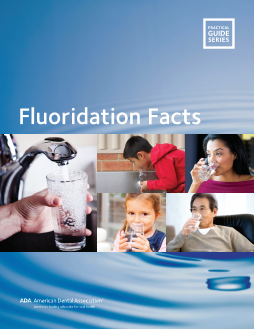FDA to restrict sale of fluoride supplements, halting previously promised ban
ADA says doctor’s clinical judgment should remain guiding factor for prescription

The U.S. Food and Drug Administration announced Oct. 31 that it plans to restrict the sale of unapproved ingestible fluoride prescription drug products for children.
The FDA shared its intention to take enforcement action “against those marketing unapproved fluoride-containing ingestible drugs labeled for use in children under age 3 or older children at low or moderate risk for tooth decay.” This comes after the agency’s earlier proposal to remove fluoride supplements from the market entirely by October.
The change is intended to protect kids from the “risks associated with ingestive fluoride,” according to the FDA. The ADA reaffirmed its longstanding support for appropriate fluoride use as a proven tool to prevent cavities and strengthen teeth. In July, former ADA President Brett Kessler, D.D.S., shared remarks in support of fluoride supplements at a hybrid public meeting held by the FDA to gather input on the clinical use of and safety concerns associated with orally ingestible unapproved prescription drug products containing fluoride in the pediatric population.
“The research shows that daily use of fluoride tablets or drops at home are a safe and effective way to strengthen teeth and prevent cavities,” said ADA President Richard J. Rosato, D.M.D. “A doctor’s clinical judgment, not a new warning label, should remain the guiding factor in determining appropriate fluoride use for children, ensuring both safety and access to essential oral health care.”
Fluoride supplements are commonly prescribed for children who live in areas where community water systems do not contain sufficient fluoride. The ADA’s evidence-based guidelines recommend supplement dosages based on a child’s age and the fluoride concentration in the local water supply.
The ADA’s current recommendations are:
• Birth to 6 months: No supplements recommended.
• 6 months to 3 years: 0.25 mg/day if local water fluoride <0.3 ppm.
• 3 to 6 years: 0.5 mg/day if <0.3 ppm; 0.25 mg/day if 0.3–0.6 ppm.
• 6 to 16 years: 1 mg/day if <0.3 ppm; 0.5 mg/day if 0.3–0.6 ppm.
• No supplement is recommended when water fluoride levels are ≥0.6 ppm.
In states and municipalities where community water fluoridation has been reduced or discontinued, such as some areas of Utah and Florida, fluoride supplements may serve as an important alternative preventive measure.
“Prescription-strength fluoride supplements are safe, but they are not prescribed for everyone; their use should remain a thoughtful decision made between a dentist and the patient,” Dr. Rosato said. “Determining patients’ needs for a fluoride supplement must include individual discussions between parents and guardians with their children’s dentists and pediatricians.”
The ADA has long advocated for community water fluoridation and other evidence-based fluoride therapies as equitable and cost-effective measures to improve oral health nationwide.
For more information about fluoride use and the ADA’s advocacy efforts, visit ADA.org/fluoride.


